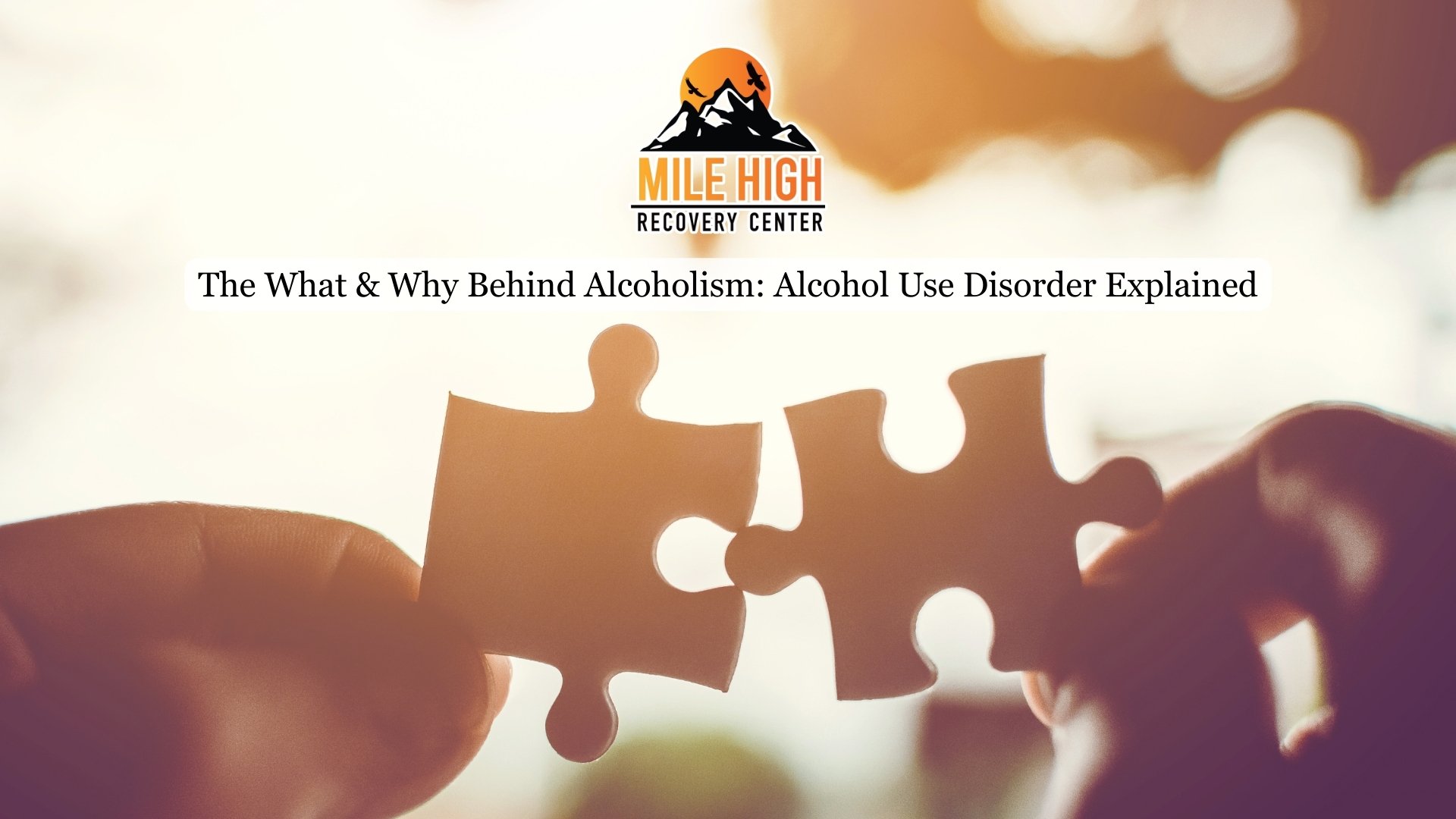Our Team and Mission
Mile High Recovery Center (MHRC), located in Denver, CO, has been a beacon of hope for individuals seeking holistic mental healthcare and substance rehabilitation since its establishment in 2016.
Our center operates on the belief that true recovery is a journey toward wholeness that addresses the body, mind, and spirit of individuals. We pride ourselves on our evidence-based clinical therapeutic approaches, combined with holistic therapies, to provide comprehensive care to our clients.
At Mile High Recovery Center, we understand that recovery isn’t just about abstaining from substances or managing symptoms – it’s about reclaiming one’s life and embarking on a journey toward meaningful, purposeful living.
Our mission is rooted in the idea that every individual has the potential to heal and create a foundation for long-term recovery – starting with cultivating early recovery skills.

Navigating the Early Recovery Skills Stage
- 40% to 60% of individuals with addiction will relapse at some point in their recovery journey.
- 85% of those with substance use disorders (SUD) relapse within the first year of recovery.
- Over two-thirds of individuals in recovery experience relapse within the initial weeks or months of treatment.
What Are the Challenges of the Early Recovery Skills Stage?
- Physical withdrawal symptoms: The body’s reaction to detoxification can manifest in physical symptoms such as nausea, headaches, insomnia, and muscle aches, making the early days of sobriety challenging.
- Psychological cravings: The brain’s craving for the substance or addictive behavior can persist long after physical withdrawal, leading to intense psychological cravings that can undermine recovery efforts.
- Emotional instability: The process of confronting past traumas and managing emotions without the aid of substances can result in emotional volatility.
- Social pressures and triggers: Returning to environments or relationships associated with substance use can trigger cravings and jeopardize sobriety, requiring individuals to navigate social pressures and establish boundaries.
- Isolation and loneliness: The loss of the social support often associated with addiction can lead to feelings of isolation and loneliness.
- Temptation and relapse: The risk of relapse is highest during this period, making it crucial to have coping mechanisms in place.
Importance of Early Recovery Skills
- Increased self-awareness: Understanding your triggers and emotional states helps you anticipate and manage challenges effectively.
- Improved coping mechanisms: Learning healthy alternatives to substance use equips you to deal with stress and difficult emotions in a positive way.
- Stronger support network: Building healthy relationships with supportive individuals provides a crucial safety net during vulnerable moments.
- Enhanced communication skills: Expressing your needs and feelings assertively fosters healthy relationships and reduces the risk of isolation.
- Resilience and self-compassion: Developing the ability to bounce back from setbacks and forgive yourself fosters a positive outlook on your journey.
Essential Early Recovery Skills: Your Toolkit for Lasting Sobriety
Identify Your Triggers
Avoid High-Risk Situations
Connect With a Recovery Community
Strengthen Relationships With Loved Ones
Find a Therapist or Counselor For Early Recovery Skills
Practice Relaxation Techniques
Engage in Physical Activity
Develop Healthy Sleep Habits
Create a Daily Structure
Practice Healthy Eating
Limit Caffeine and Alcohol
Practice Mindfulness
Challenge Negative Thoughts
Express Your Emotions in Healthy Ways
Mile High Recovery Center: Your Path to Early Recovery Success
Your Personalized Recovery Roadmap
- In-depth evaluation: We delve into your addiction history, medical background, and mental health to create a holistic picture.
- Collaborative goal setting: Working with you and your loved ones, we define achievable and meaningful recovery goals that align with your values and aspirations.
- Regular progress monitoring: We track your progress regularly, adjusting your treatment plan as needed to ensure you stay on track towards your goals.
Evidence-Based Therapies for Lasting Change
Cognitive-Behavioral Therapy (CBT)
CBT helps you identify and challenge negative thought patterns that contribute to substance use. By learning to recognize and reshape these patterns, you can develop healthier coping mechanisms and make positive choices that support your recovery journey.3
Dialectical Behavioral Therapy (DBT)
DBT equips you with essential emotional regulation skills like mindfulness, distress tolerance, and interpersonal effectiveness. DBT helps you manage difficult emotions in a healthy way, navigate challenging relationships, and build resilience in the face of triggers.4
Trauma-Focused Therapy
Group Therapy
Connecting with others who share your struggles is a powerful tool for healing. In group therapy sessions, you can gain peer support, share experiences, and learn from each other’s successes and challenges.
This fosters a sense of community and belonging, reminding you that you’re not alone on your journey.
Medication-Assisted Treatment (MAT)
For certain substances, MAT can be a valuable component of your recovery plan. MAT involves combining medication with therapy to reduce cravings and withdrawal symptoms, making it easier to focus on other aspects of your recovery.
Building Life Skills and Preventing Relapse
Life Skills Training
Our team helps you develop healthy routines and coping mechanisms for managing stress, building strong relationships, and making healthy financial choices. These skills empower you to navigate daily challenges with confidence and independence.
Relapse Prevention Planning
Mindfulness and Meditation
Outdoor Adventure Therapy and Holistic Activities
Beyond Therapy
- Connect with our alumni network: Find ongoing support and inspiration from others who have successfully navigated early recovery.
- Attend workshops and educational sessions: Learn new skills and gain valuable insights on various recovery topics.
- Participate in our social and recreational activities: Build a healthy support network and enjoy activities that promote well-being.

Relapse Is a Learning Opportunity, Not a Moral Failing
Next Steps: Building Your Recovery Toolkit with Early Recovery Skills
- Identify your own needs and challenges: What skills do you feel you need to develop the most?
- Seek professional guidance: Talk to your therapist, counselor, or support group leader about developing a personalized plan.
- Practice consistently: The more you practice these skills, the more ingrained they become in your daily life.
- Celebrate your progress: Acknowledge every step forward, no matter how small.
- Don’t hesitate to seek help: If you face challenges or experience a setback, reach out for support immediately.
Are You Ready to Learn Early Recovery Skills for Recovery?
If you or a loved one is ready to embark on the journey to sustainable sobriety by developing early recovery skills, contact Mile High Recovery Center today. Our compassionate team is here to provide personalized support and guidance as you navigate the challenges of early recovery.
Call us at 303-268-2996 or reach out online to learn more about our programs and services. Remember, recovery is possible, and we’re here to help you every step of the way.
Take the first step towards a brighter future today by learning early recovery skills for lasting health.






